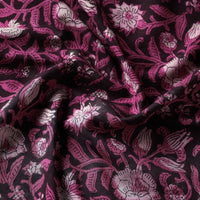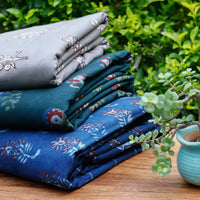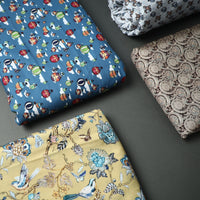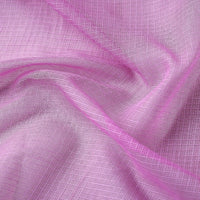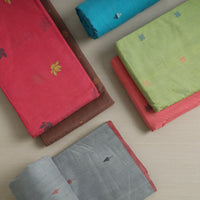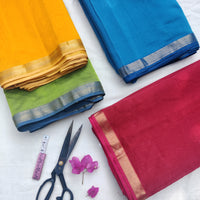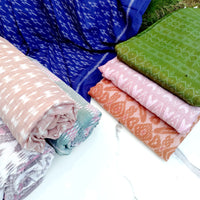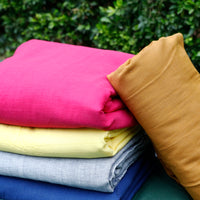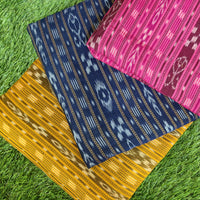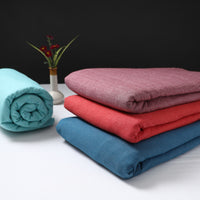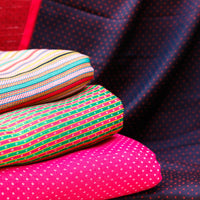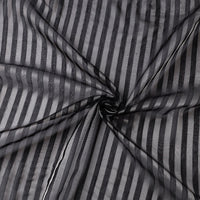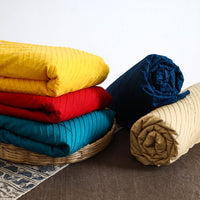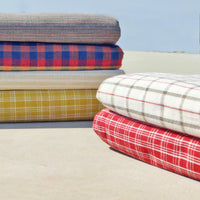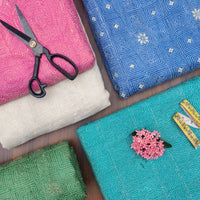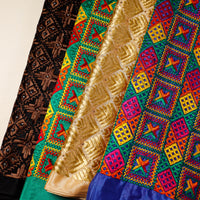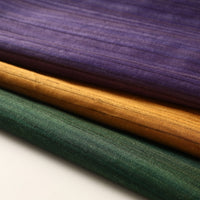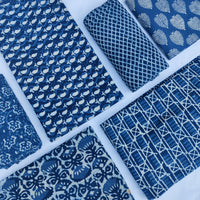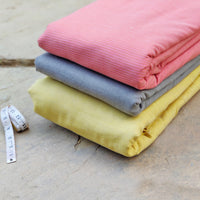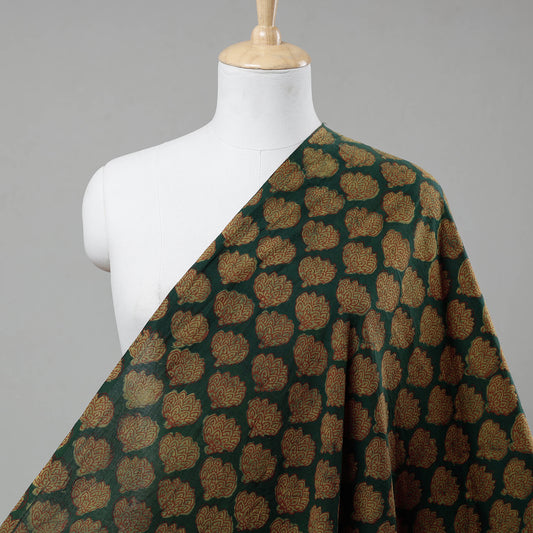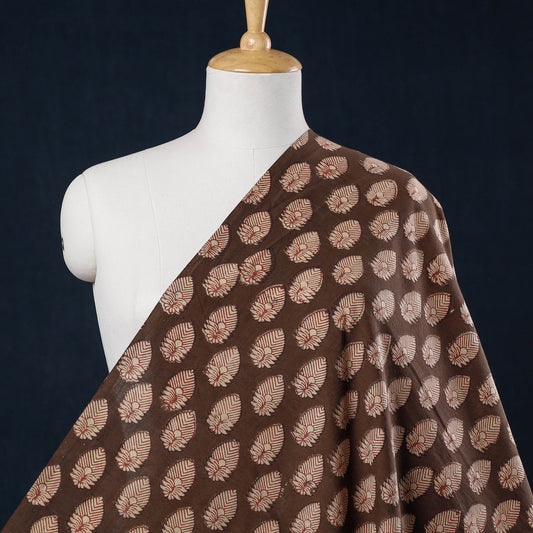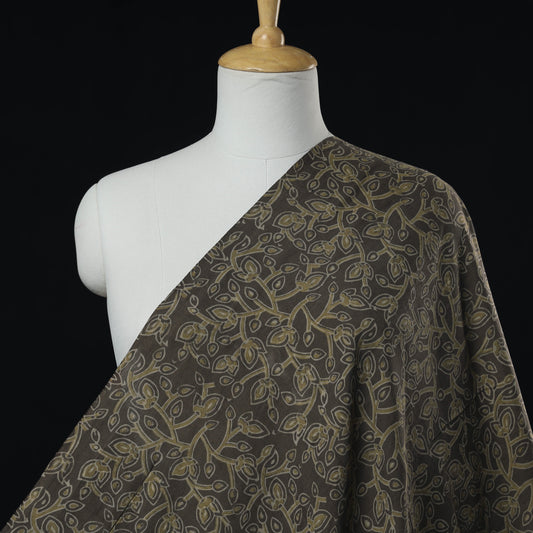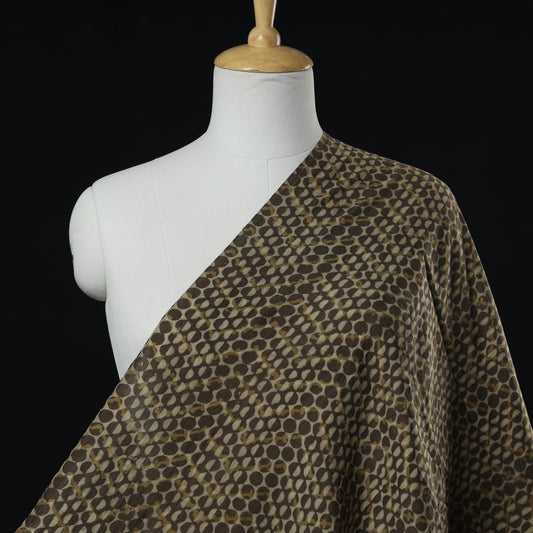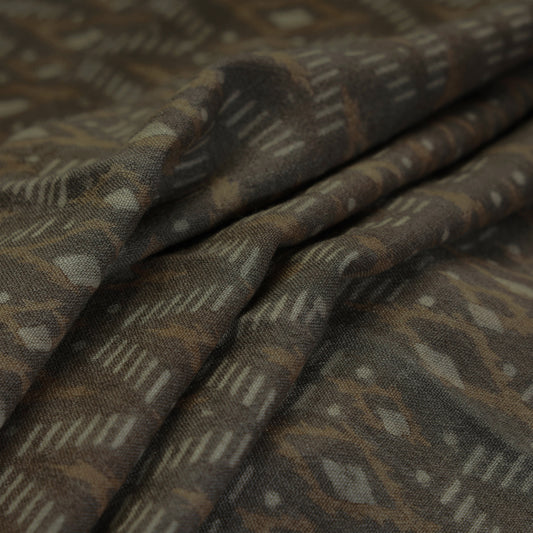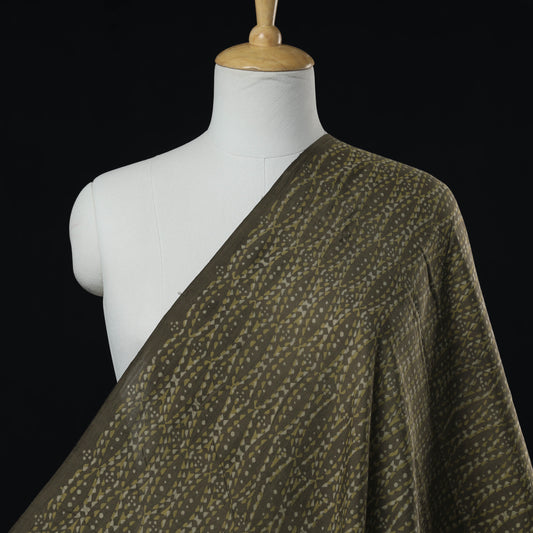The Story Behind Akola Hand Block Printing: A Heritage Preserved by iTokri
Introduction to Akola Hand Block Printing
In the quaint town of Akola, nestled in the Rajasthan state of India, the ancient craft of hand block printing thrives with unparalleled artistry and dedication. This tradition, steeped in centuries of history, represents more than just a method of textile design—it is a testament to the enduring spirit of cultural heritage and artisanal craftsmanship. Each piece of Akola hand block print fabric tells a story, a narrative of skilled artisans who have honed their craft over generations, preserving a vibrant legacy that resonates with both local and global audiences.
At iTokri, we are not merely a platform for selling these exquisite fabrics; we are the custodians of this heritage, dedicated to bringing the rich cultural narratives of India to the world. Our commitment to authenticity, sustainability, and artisan support is reflected in every product we offer, including our exclusive collection of Akola hand block print fabrics.
The Cultural and Historical Significance of Akola Hand Block Printing
A Craft Rooted in Tradition
The origins of Akola hand block printing can be traced back over 400 years, to an era when artisans first began experimenting with natural dyes and intricate wooden blocks to create mesmerizing patterns on fabric. The craft, which has been passed down through generations, is a fusion of tradition and innovation. Each design is meticulously carved into wooden blocks, often depicting motifs inspired by nature, folklore, and the rich cultural tapestry of Rajasthan.
The process of creating Akola hand block prints is labor-intensive and requires a deep understanding of color theory, fabric types, and the intricate interplay of patterns. Artisans in Akola have mastered the art of balancing these elements, producing textiles that are not only visually stunning but also carry the weight of history and cultural significance.
The Role of Natural Dyes in Sustainability
One of the defining features of Akola hand block printing is the use of natural dyes. Derived from plants, minerals, and other natural sources, these dyes are eco-friendly and sustainable, aligning perfectly with iTokri's commitment to environmental stewardship. The use of natural dyes also ensures that each piece of fabric is unique, with slight variations in color and pattern adding to the charm and authenticity of the final product.
In a world increasingly dominated by synthetic and mass-produced textiles, Akola hand block printing stands as a beacon of sustainable art. By choosing fabrics made with natural dyes, consumers not only embrace a piece of Indian heritage but also contribute to the preservation of the environment—a core value that iTokri upholds with every product we offer.
The Artisans of Akola: Keepers of Tradition
Community and Craftsmanship
The artisans of Akola are the heart and soul of the hand block printing tradition. Many of these artisans belong to families that have been practicing the craft for generations, each member contributing to the process with a deep sense of pride and responsibility. The community is tightly knit, with knowledge and skills passed down from elders to the younger generation, ensuring the continuity of this ancient craft.
iTokri works closely with over 500 artisan groups across India, including the talented artisans of Akola. Our platform serves as a bridge between these skilled craftsmen and a global audience, allowing the world to experience the beauty and intricacy of their work. By purchasing Akola hand block print fabrics from iTokri, customers directly support these artisans, helping to sustain their livelihoods and preserve their craft for future generations.
Human Interest Stories: The Lives Behind the Prints
Every piece of Akola hand block print fabric carries the imprint of the artisan who created it. These artisans are not just skilled workers; they are storytellers, cultural historians, and custodians of a rich heritage. Take, for example, the story of Ramlal, a master craftsman in his late fifties who learned the art of block printing from his father. Ramlal's family has been involved in this craft for over a century, with each generation adding its own innovations while remaining true to the traditional techniques.
Ramlal's work is known for its intricate detailing and the use of bold, natural colors that are characteristic of Akola prints. His fabrics have been showcased in exhibitions across India, earning him recognition and respect in the artisan community. Yet, despite his success, Ramlal remains deeply rooted in his tradition, working from a small workshop in Akola where he continues to create masterpieces that are sought after by connoisseurs around the world.
Such stories are a testament to the resilience and dedication of the artisans, who continue to practice their craft despite the challenges posed by modernization and the pressures of mass production. At iTokri, we celebrate these artisans, sharing their stories with our customers and helping to keep their traditions alive.
The Process of Akola Hand Block Printing
From Design to Fabric: The Journey of an Akola Print
The process of creating an Akola hand block print fabric is a meticulous and time-consuming one, involving several stages that require precision and expertise. The journey begins with the design, where artisans draw inspiration from traditional motifs and contemporary trends to create patterns that are both timeless and relevant.
Once the design is finalized, it is transferred onto wooden blocks, which are then hand-carved by skilled craftsmen. These blocks are used to imprint the patterns onto fabric, with each color applied separately in a layered process. The use of natural dyes adds an additional layer of complexity, as the colors must be carefully mixed and applied to achieve the desired effect.
After the printing is complete, the fabric is washed to remove excess dye and then dried in the sun. This process not only fixes the colors but also gives the fabric its characteristic softness and sheen. The result is a piece of fabric that is not only beautiful but also durable and eco-friendly.
The Challenges and Triumphs of the Craft
Despite its beauty and cultural significance, the craft of Akola hand block printing faces numerous challenges. The rise of synthetic textiles and mass production has led to a decline in demand for handcrafted fabrics, threatening the livelihoods of artisans who rely on this craft for their income. Additionally, the process itself is labor-intensive and time-consuming, making it difficult for artisans to compete with cheaper, machine-made alternatives.
However, there is hope. The growing interest in sustainable and ethical fashion has led to a resurgence in demand for handcrafted textiles like Akola prints. Consumers are increasingly seeking out products that are not only beautiful but also have a story to tell—a story of tradition, craftsmanship, and cultural heritage. At iTokri, we are proud to be at the forefront of this movement, offering a platform where artisans can showcase their work and reach a global audience that values quality and authenticity.
iTokri: A Platform for Artisan Empowerment
Supporting Artisans, Preserving Heritage
At iTokri, we believe that every purchase should have a purpose. That’s why we are committed to supporting the artisans behind our products, ensuring that they receive fair compensation for their work and that their craft is preserved for future generations. By choosing to shop at iTokri, customers are not just buying a product; they are becoming part of a movement to preserve India’s rich cultural heritage and support sustainable, ethical practices.
Our partnerships with artisan groups go beyond mere transactions. We work closely with these communities, providing them with the resources and support they need to continue practicing their craft in a rapidly changing world. This includes everything from sourcing raw materials to providing access to new markets, helping artisans to grow their businesses and reach a wider audience.
A Commitment to Sustainability
Sustainability is at the core of everything we do at iTokri. From the use of natural dyes in our fabrics to the eco-friendly packaging we use for our products, we are dedicated to minimizing our environmental impact and promoting sustainable practices. Our commitment to sustainability extends to the artisans we work with, many of whom rely on traditional, environmentally-friendly techniques that have been passed down through generations.
By choosing Akola hand block print fabrics from iTokri, customers are not only supporting the artisans but also contributing to a more sustainable future. Our products are made with care and respect for the environment, ensuring that each purchase is a step towards a greener, more ethical world.
Building a Global Community
While our roots are deeply embedded in the local communities of India, our reach is global. At iTokri, we strive to connect the world with the beauty and diversity of Indian craftsmanship. Our platform serves as a bridge between cultures, allowing people from all over the world to experience the richness of Indian heritage through our curated collection of handcrafted products.
We believe in the power of stories to bring people together, and we use our platform to share the stories of the artisans who create our products. Through our blog, social media channels, and customer interactions, we foster a community that values craftsmanship, sustainability, and cultural preservation. This sense of community is at the heart of iTokri, making us more than just an e-commerce platform—we are a family, united by a love for handmade, authentic products.
Conclusion: Join the iTokri Movement
At iTokri, we invite you to be part of a movement that celebrates the beauty of handmade products and supports the artisans who create them. Our Akola hand block print fabrics are more than just textiles; they are pieces of art, each one carrying the legacy of centuries-old traditions and the stories of the people who keep these traditions alive.
By choosing to shop at iTokri, you are not only acquiring a beautiful product but also contributing to the preservation of cultural heritage and the empowerment of artisans. You are supporting sustainable practices and becoming part of a global community that values authenticity, quality, and craftsmanship.
Explore our collection of Akola hand block print fabrics and discover the magic of this ancient craft. With iTokri, every purchase is a step towards a brighter, more sustainable future for artisans across India. Join us in celebrating the art of Akola hand block printing and be a part of the iTokri family today.
FAQ Section for Akola Hand Block Print Fabrics Collection
1. What is Akola hand block printing?
Akola hand block printing is a traditional textile printing technique that originates from the Akola region in Maharashtra, India. Artisans use hand-carved wooden blocks to stamp intricate patterns onto fabric. Each block is carefully dipped in natural dyes before being pressed onto the fabric, creating unique and vibrant designs. This age-old craft has been passed down through generations and is known for its precision, artistry, and cultural significance.
2. How is Akola hand block printing different from other fabric printing methods?
Akola hand block printing stands out for its manual process, where every design is meticulously created by skilled artisans using hand-carved wooden blocks. Unlike machine printing, which can produce uniform patterns quickly, hand block printing allows for slight variations in each piece, giving the fabric a distinct and personalized touch. The use of natural dyes and the intricate detailing of the patterns also set it apart from more modern printing techniques.
3. Why should I choose Akola print fabrics?
Akola print fabrics are a perfect blend of tradition, artistry, and sustainability. By choosing these fabrics, you’re not only embracing unique and beautiful designs but also supporting the livelihoods of skilled artisans who continue to preserve this cultural heritage. The use of natural dyes makes these fabrics eco-friendly, and their handmade nature ensures that each piece is one-of-a-kind, reflecting a rich cultural history.
4. Are Akola print fabrics eco-friendly?
Yes, Akola print fabrics are eco-friendly. The artisans use natural dyes derived from plants, minerals, and other organic sources, which are biodegradable and have a lower environmental impact compared to synthetic dyes. Additionally, the hand block printing process itself is energy-efficient, as it doesn’t rely on large machines or harmful chemicals, making it a sustainable choice for conscious consumers.
5. How do I care for Akola hand block print fabrics?
To maintain the vibrancy and quality of Akola hand block print fabrics, it’s recommended to hand wash them separately in cold water using mild detergent. Avoid wringing the fabric to prevent damage to the print. If machine washing is necessary, use a gentle cycle with cold water. It’s also best to dry the fabric in the shade to preserve the natural dyes. Ironing should be done on the reverse side at a low temperature.
6. What products are available in the Akola print collection?
The Akola print collection at iTokri includes a wide range of products, such as sarees, dress materials, dupattas, and home textiles like curtains and cushion covers. Each product showcases the intricate designs and vibrant colors characteristic of Akola prints, offering something for every taste and style preference. The collection is regularly updated with new designs, ensuring a fresh selection of handcrafted products.
7. How does iTokri support the artisans behind Akola prints?
iTokri is deeply committed to supporting the artisans behind Akola prints by providing them with a platform to reach a global audience. The brand ensures that artisans are paid fairly for their work, helping to sustain their livelihoods and preserve the craft. By promoting these traditional textiles, iTokri also helps to keep the art form alive, encouraging younger generations to continue practicing and innovating within the craft.
8. Can I customize Akola print fabrics?
Yes, customization options are available for Akola print fabrics at iTokri. Whether you need a specific color scheme, pattern, or size, you can get in touch with iTokri’s customer service to discuss your requirements. Custom orders may take longer to process, as they involve additional collaboration with the artisans, but they ensure you receive a truly unique and personalized product.
9. What is the cultural significance of Akola hand block prints?
Akola hand block prints carry deep cultural significance, reflecting the region’s rich heritage and the artistic skills of its people. The designs often draw inspiration from nature, local folklore, and traditional motifs, making each piece a testament to the region's history and traditions. By owning a piece of Akola print fabric, you’re not just purchasing a product; you’re connecting with a cultural legacy that spans centuries.
10. How long does it take to receive my order of Akola print fabrics?
Delivery times for Akola print fabrics can vary depending on your location and the specifics of your order. Typically, orders within India are delivered within 7-10 business days, while international orders may take 10-15 business days. Custom orders or products requiring special attention may take longer. iTokri provides tracking information once the order is dispatched, so you can monitor your delivery status in real-time.
अकोला हैंड ब्लॉक प्रिंटिंग: इटोकरी द्वारा संरक्षित एक धरोहर
अकोला, राजस्थान का एक छोटा सा शहर, सदियों पुरानी हैंड ब्लॉक प्रिंटिंग कला का केंद्र है। इस कला का इतिहास 400 साल से भी पुराना है और यह भारतीय संस्कृति और शिल्पकला की एक अमूल्य धरोहर है। अकोला के कारीगर लकड़ी के ब्लॉकों का उपयोग करके प्राकृतिक रंगों से कपड़ों पर जटिल पैटर्न तैयार करते हैं, जो कि हाथ से किए गए हर प्रिंट में एक अनूठी छाप छोड़ते हैं।
इटोकरी, इस कला को वैश्विक मंच पर लाने के लिए समर्पित है, जो न केवल इन उत्कृष्ट कपड़ों को बेचने का काम करती है, बल्कि इस धरोहर की संरक्षक भी है। इटोकरी के जरिए अकोला के कारीगरों को उनके शिल्प के लिए उचित पारिश्रमिक मिलता है, जिससे उनकी आजीविका सुरक्षित होती है और यह परंपरा जीवित रहती है।
अकोला प्रिंट्स की एक और खासियत इनका पर्यावरण के प्रति संवेदनशील होना है। इन कपड़ों में उपयोग किए गए प्राकृतिक रंग न केवल पर्यावरण के लिए अनुकूल होते हैं, बल्कि हर कपड़ा भी अपने आप में अनोखा होता है।
अकोला हैंड ब्लॉक प्रिंटिंग न केवल एक शिल्प है, बल्कि यह एक सांस्कृतिक धरोहर भी है, जिसे हर कपड़े में देखा जा सकता है। इटोकरी इन कारीगरों के काम को न केवल बाजार में लाने का काम करती है, बल्कि उनके जीवन और परंपरा की कहानियों को भी दुनिया के सामने पेश करती है।
इटोकरी के अकोला हैंड ब्लॉक प्रिंट फैब्रिक्स खरीदकर, आप न केवल एक खूबसूरत कपड़ा प्राप्त करते हैं, बल्कि भारतीय सांस्कृतिक धरोहर के संरक्षण में भी योगदान देते हैं।

















